Deals to push forward carbon commitments
Vietnam over a week ago signed up to the Asia Zero Emission Community (AZEC) scheme initiated by Japan, aimed to achieve carbon neutrality via coordinated steps such as developing hydrogen supply chains and setting decarbonisation standards while ensuring energy security.
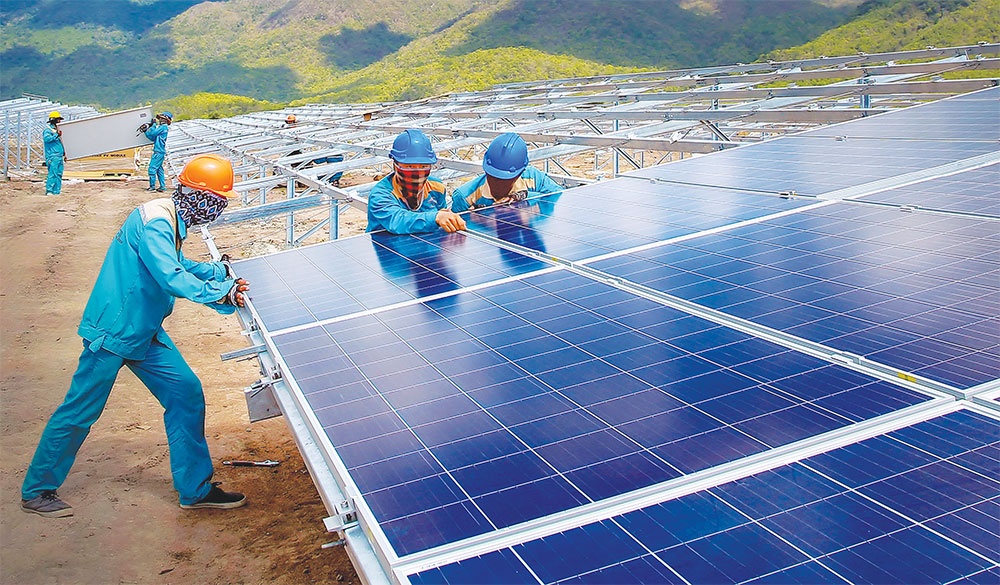 |
| Deals to push forward carbon commitments, photo: Le Toan |
The other nations to have joined AZEC include Australia, Brunei, Cambodia, Indonesia, Japan, Laos, Malaysia, the Philippines, Singapore, and Thailand. The participating nations want to decarbonise their economies without sacrificing economic growth and energy security.
“Under AZEC, we intend to cooperate in such areas as setting standards through policy coordination and support decarbonisation technological developments and demonstration to help expand the new technology and reduce costs,” said Japan’s Minister of Economy, Trade and Industry Yasutoshi Nishimura.
“For example, we will look at forming master plans for hydrogen and ammonia in Asia and set technological standards for carbon capture and storage, and conform the importance of natural gas and liquefied gas as transition energy.”
Vietnamese Deputy Prime Minister and Minister of Natural Resources and Environment Tran Hong Ha, who represented Vietnam in approving the scheme at a ministerial meeting in Tokyo on March 4, called for more international support for Vietnam to realise its net-zero targets.
He proposed participating countries establish specific institutions such as a carbon credit market of the region, and a research and technology transfer centre. “It is because technology is a key to reducing emissions while ensuring energy security and ensuring the state, people and businesses have access to clean energy at affordable prices,” Ha said.
Since its declaration of making efforts to achieve net-zero emissions in November 2021, Vietnam has received plenty of international assistance. For instance, British Ambassador to Vietnam Iain Frew told DPM Ha that the UK would like to discuss with Vietnam’s relevant agencies possibilities in support for Vietnam in renewable energy, net-zero emissions, and climate change response.
The UK is among 10 economies within the International Partners Group (IPG) and Vietnam that in December agreed on a bold just energy transition partnership (JETP), which will mobilise an initial $15.5 billion of public and private finance over the next 3-5 years to support Vietnam’s green transition.
Initial contributions to the Vietnam JETP include $7.75 billion in pledges from the IPG together with the Asian Development Bank and the International Finance Corporation. This is supported by a commitment to work to mobilise and facilitate a matching $7.75 billion in private investment from an initial set of private financial institutions, coordinated by the Glasgow Financial Alliance for Net Zero.
Underlining the importance of mechanisms to realise ideas and commitments made under the agreement, DPM Ha said, “Vietnam is very much in need of the UK’s support in technology transfer, technical consultation, financial mechanisms, and investor selection for concrete projects in renewable energy (particularly offshore wind energy), forest plantation, carbon capture, green hydrogen production, and research of new technology.”
Within 2023, Vietnam will work with the support of partner countries to develop and adopt the Vietnam JETP Resource Mobilisation Plan, which will enable the implementation of the funding and strategy.
The United Nations Development Programme (UNDP) also said it is ready to support Vietnam in the detailed formulation and implementation of the resource mobilisation plan this year. “This includes our proven technical assistance services to the governments in green transition/nationally appropriate mitigation actions projects, which can help Vietnam identify cost-effective de-risking public instruments to promote and scale up private sector investments in the resource mobilisation plan,” said UNDP resident representative in Vietnam Ramla Khalidi.
The UNDP is now initiating assessments on the impact of phasing-out coal power and energy transition in Vietnam and defining what these processes would specifically mean for the country.
In its country partnership strategy for Vietnam for 2023-2026, the Asian Development Bank (ADB) also stated that Vietnam is facing the twin challenges of meeting rapid energy demand growth with simultaneous decarbonisation. Vietnam’s energy demand has been continuously growing at a higher rate than economic growth.
According to Electricity of Vietnam, power demand growth was 10.3-11.3 per cent per year in 2016-2020 and is projected to grow by 8-8.5 per cent annually in 2021-2030. To meet its fast-rising energy demand, Vietnam has relied on fossil fuels. Carbon emissions have therefore increased at a rapid rate of 7.9 per cent annually, faster than the real GDP rate (6.5-7 per cent annually).
As a result, Vietnam’s carbon intensity, which measures emissions per unit of GDP, is higher than that of other countries in ASEAN; fossil emissions in Vietnam in 2019 were also the highest in the ASEAN. Vietnam’s net-zero commitment therefore requires redesigning the strategy for power sector development, including a transition from coal-fired power generation to more environmentally friendly sources of energy.
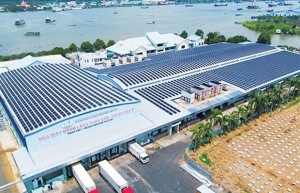 | Vietnam must step up carbon reduction to enter EU markets Vietnam must start monitoring and issuing carbon certificates to exporters and retailers in response to the EU's recently passed carbon levy, said industry insiders and policymakers. |
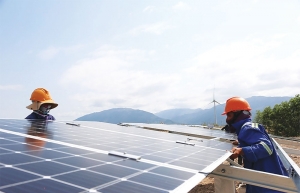 | Resource mobilisation at top of agenda for net-zero dream With its huge need for funding to fulfil its international commitment to achieve net-zero emissions by 2050, which has been backed by an international initiative, Vietnam is set to formulate new policies this year to mobilise more resources. |
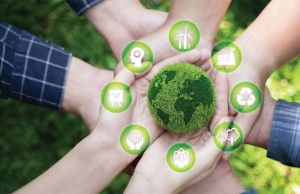 | Vietnam and Japan cooperate for a net-zero carbon future Japan is promoting green growth cooperation with Vietnam, with low-carbon value chains considered one of the leading priorities. |
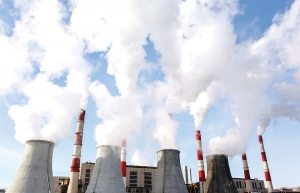 | Taking a five-step approach towards decarbonisation Companies are facing geopolitical upheavals, supply chain disruption, inflation, and the threat of recession. Despite this perfect storm, their commitment to decarbonisation has not fundamentally wavered. The number of companies embracing science-based targets is continuing to grow at a rapid pace. |
What the stars mean:
★ Poor ★ ★ Promising ★★★ Good ★★★★ Very good ★★★★★ Exceptional
Related Contents
Latest News
More News
- $100 million initiative launched to protect forests and boost rural incomes (January 30, 2026 | 15:18)
- Trung Nam-Sideros River consortium wins bid for LNG venture (January 30, 2026 | 11:16)
- Vietnam moves towards market-based fuel management with E10 rollout (January 30, 2026 | 11:10)
- Envision Energy, REE Group partner on 128MW wind projects (January 30, 2026 | 10:58)
- Vingroup consults on carbon credits for electric vehicle charging network (January 28, 2026 | 11:04)
- Bac Ai Pumped Storage Hydropower Plant to enter peak construction phase (January 27, 2026 | 08:00)
- ASEAN could scale up sustainable aviation fuel by 2050 (January 24, 2026 | 10:19)
- 64,000 hectares of sea allocated for offshore wind surveys (January 22, 2026 | 20:23)
- EVN secures financing for Quang Trach II LNG power plant (January 17, 2026 | 15:55)
- PC1 teams up with DENZAI on regional wind projects (January 16, 2026 | 21:18)

 Tag:
Tag:




















 Mobile Version
Mobile Version